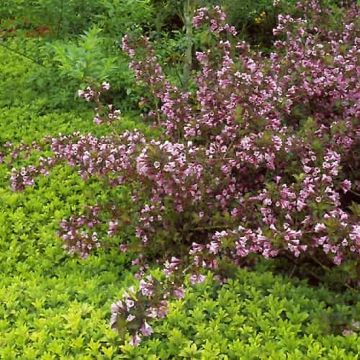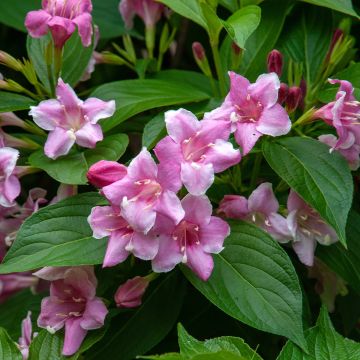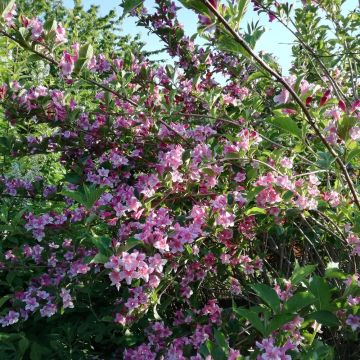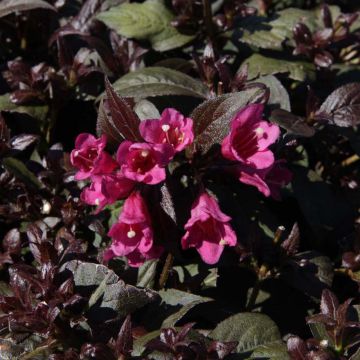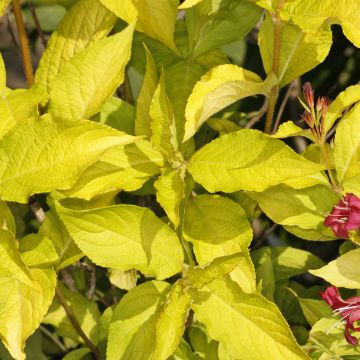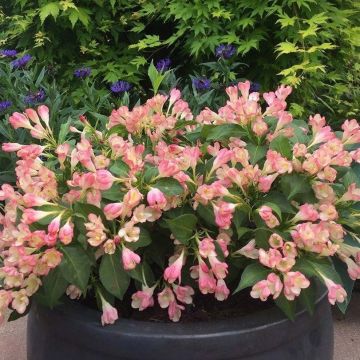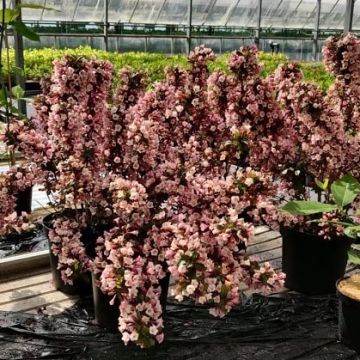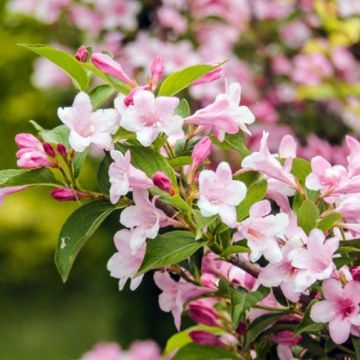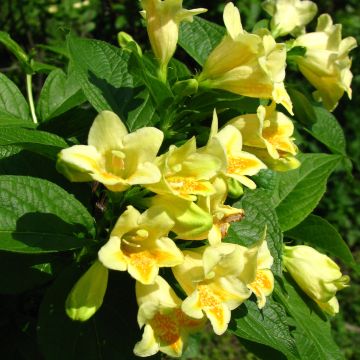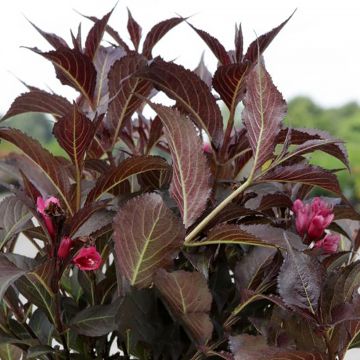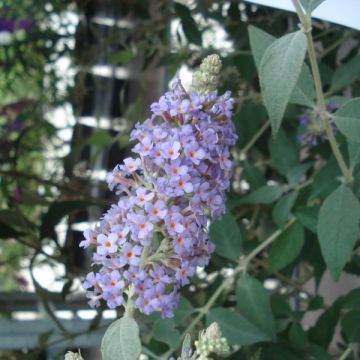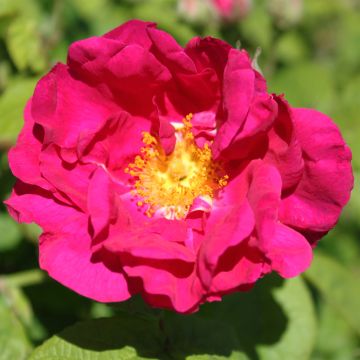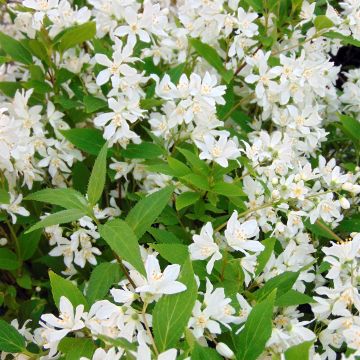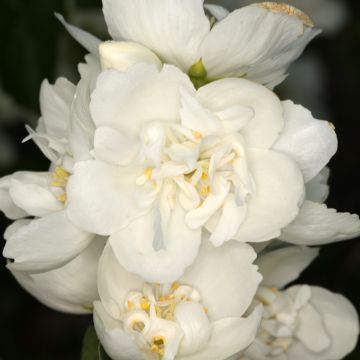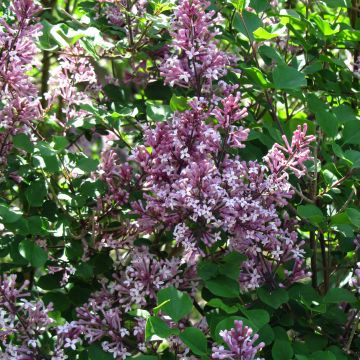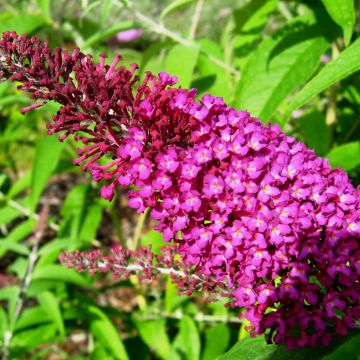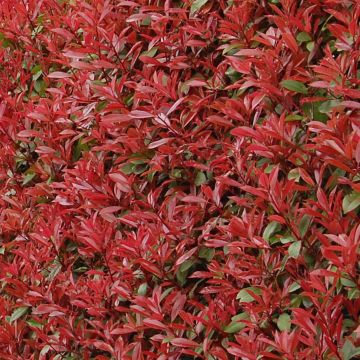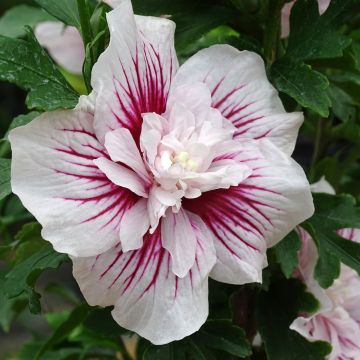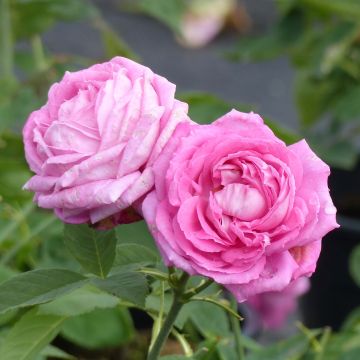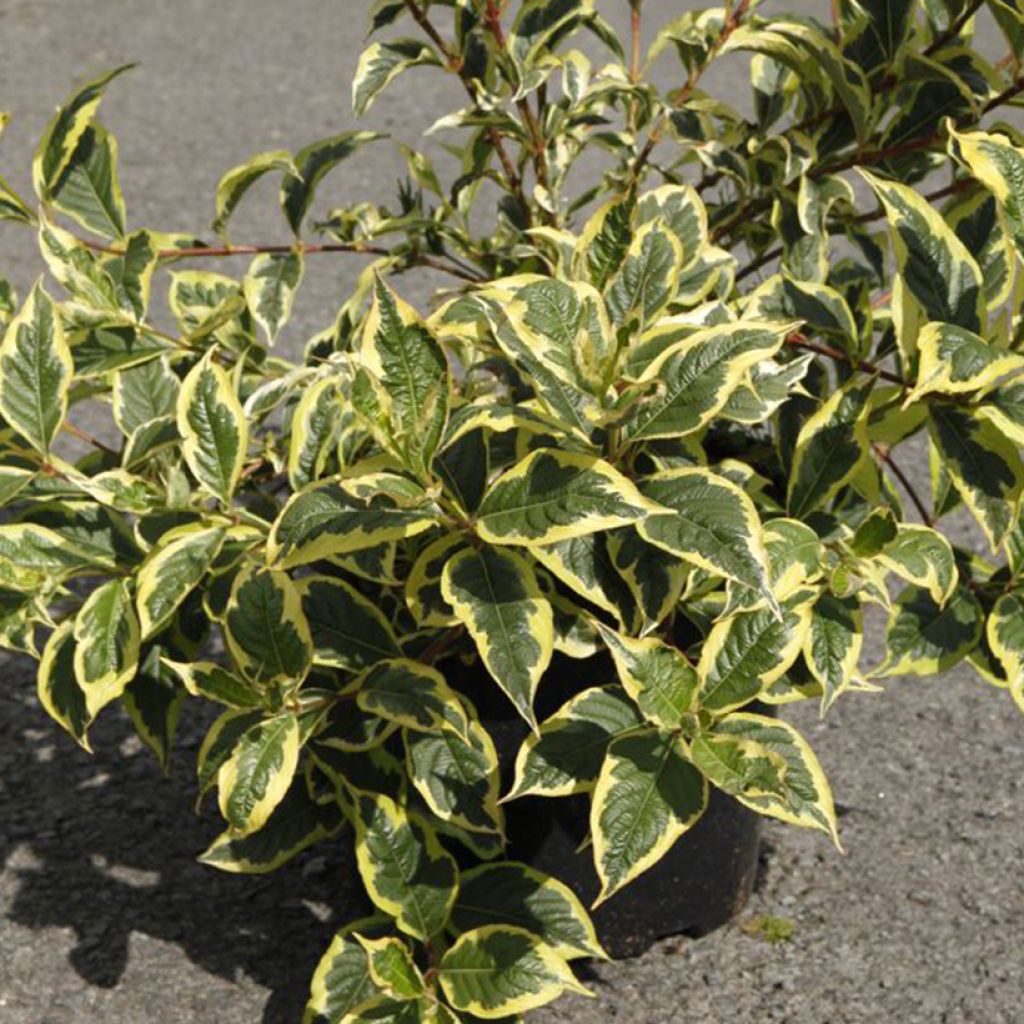

Weigela florida White Lightning
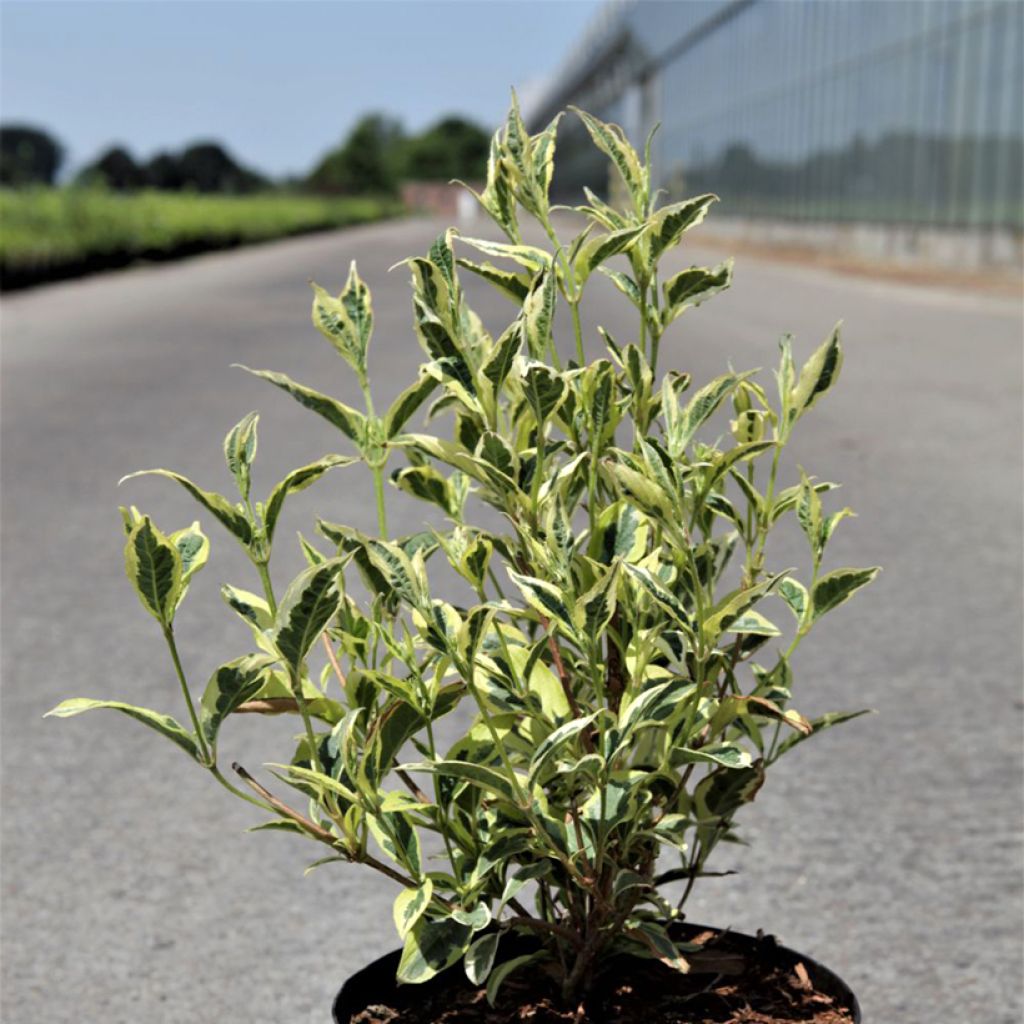

Weigela florida White Lightning
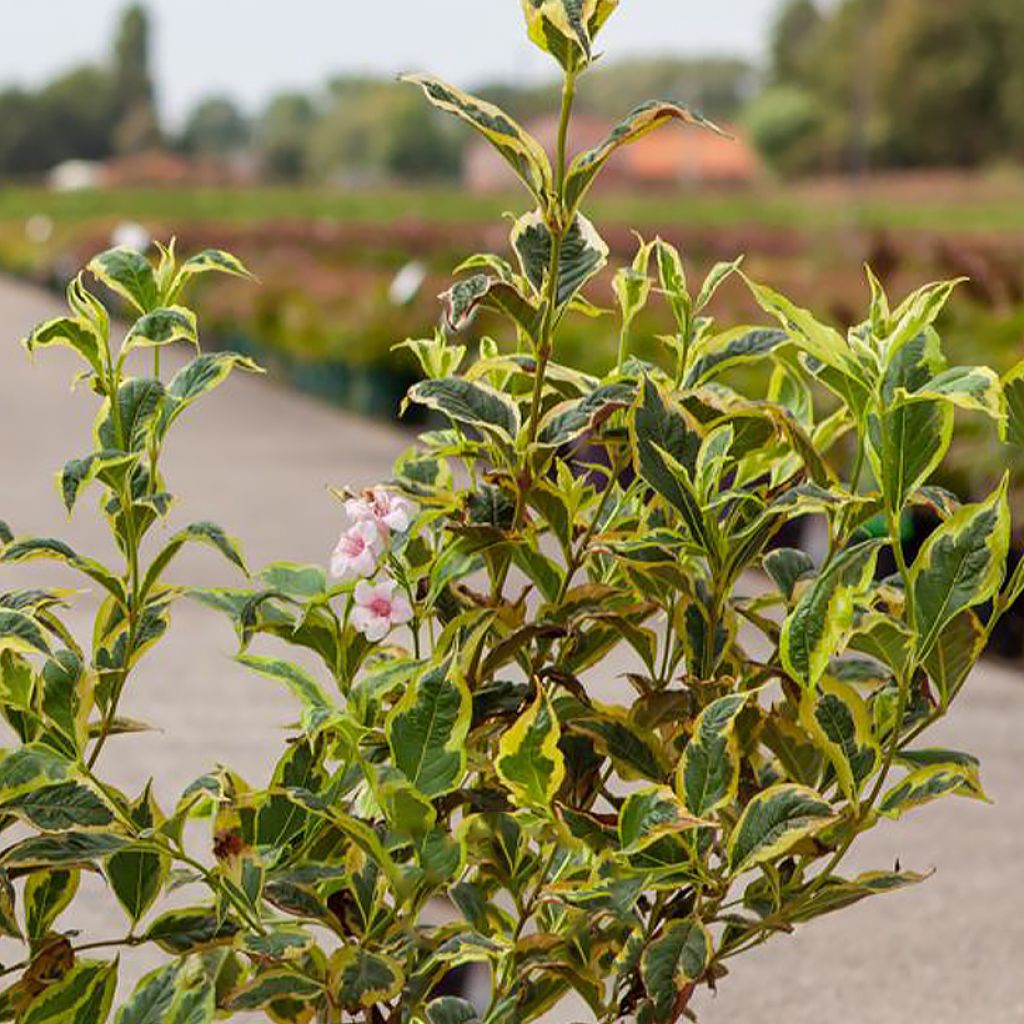

Weigela florida White Lightning
Weigela florida White Lightning
Weigela florida White Lightning
Old-fashioned Weigela
This item cannot be shipped to the selected country
Delivery charge from €5.90
Delivery charge from €5.90
More information
Schedule delivery date,
and select date in basket
This plant carries a 24 months recovery warranty
More information
We guarantee the quality of our plants for a full growing cycle, and will replace at our expense any plant that fails to recover under normal climatic and planting conditions.
From €5.90 for pickup delivery and €6.90 for home delivery
Express home delivery from €8.90.
From €5.90 for pickup delivery and €6.90 for home delivery
Express home delivery from €8.90.
Does this plant fit my garden?
Set up your Plantfit profile →
Description
Weigela White Lightning is a charming small shrub, decorative for most of the year. Its green foliage is variegated with yellow, giving it a bright appearance. In June, it is adorned with numerous pink flower buds, turning into white flowers, until July. Adapting to almost all soils and climates, it dislikes only excessively dry summers. This versatile and commendable plant will be happy in any English or romantic-style border.
Originating from northern China, Japan, and Korea, Weigela florida is a deciduous shrub belonging to the Caprifoliaceae family. This botanical family includes multiple decorative species in the garden, such as honeysuckles (Lonicera), Abelias, Leycesterias (pheasant berry) or snowberries. A highly adaptable plant, it grows in neutral, alkaline, or moderately acidic soil. Weigela has a fibrous and spreading root system that tolerates transplantation.
The 'White Lightning' cultivar has a rounded and bushy habit, with fairly flexible stems. It forms a branching bush that will eventually grow to 1.50 m (5ft) in height and spread. Its flower buds are pink and produce funnel-shaped white flowers in June-July. They are carried in corymbs at the ends of the previous year's branches. This flowering is highly pollen- and nectar-rich, making it a useful plant for wildlife. Its foliage consists of green leaves, adorned with a particularly decorative yellow margin throughout the growing season, and even more so in autumn when this margin reddens due to the first cold temperatures. The foliage, deciduous, is absent in winter.
This compact White Lightning variety, which forms a ball of flowers, adds a great deal of sparkle to the garden, as well as to the terrace. Its small size and good pruning tolerance make it easy to cultivate in a decorative pot. In a flower bed, combine it with Cotinus 'Old Fashioned' with astonishing foliage colours that change throughout the season; Black Tower Elderberry with almost black foliage that contrasts with the bright Weigela; or the amazing Berberis 'Harlequin' with purple leaves splashed with pink and white to create a delightfully colourful scene. In the background, the very dark foliage of the hollies, mahonias and yews will provide a backdrop for its flowers and variegated foliage, and ensure a continuous display in winter.
Report an error about the product description
Weigela florida White Lightning in pictures
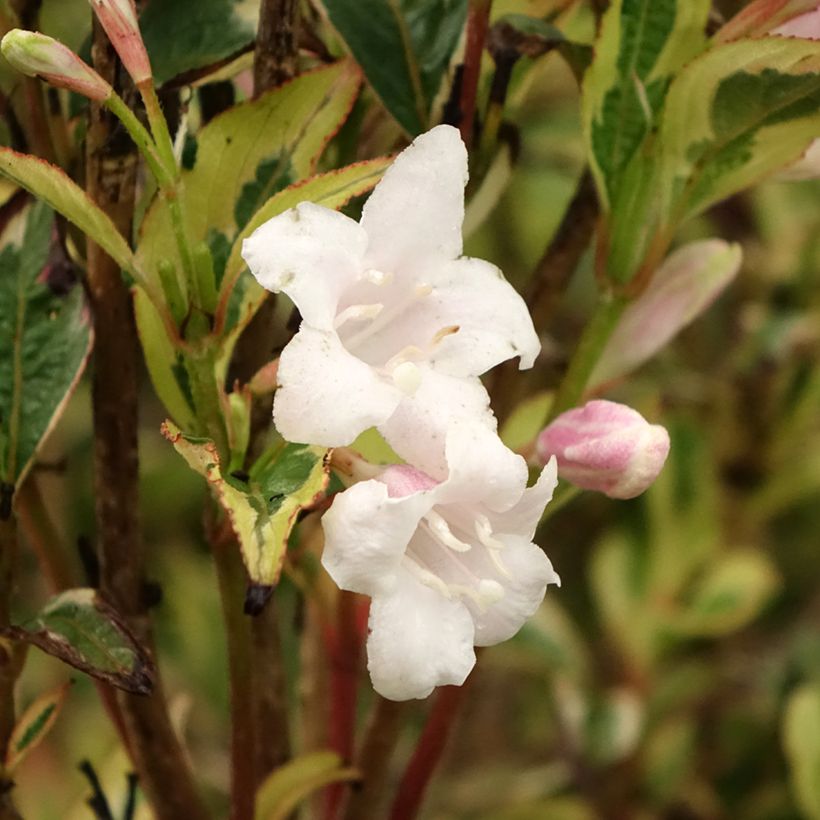

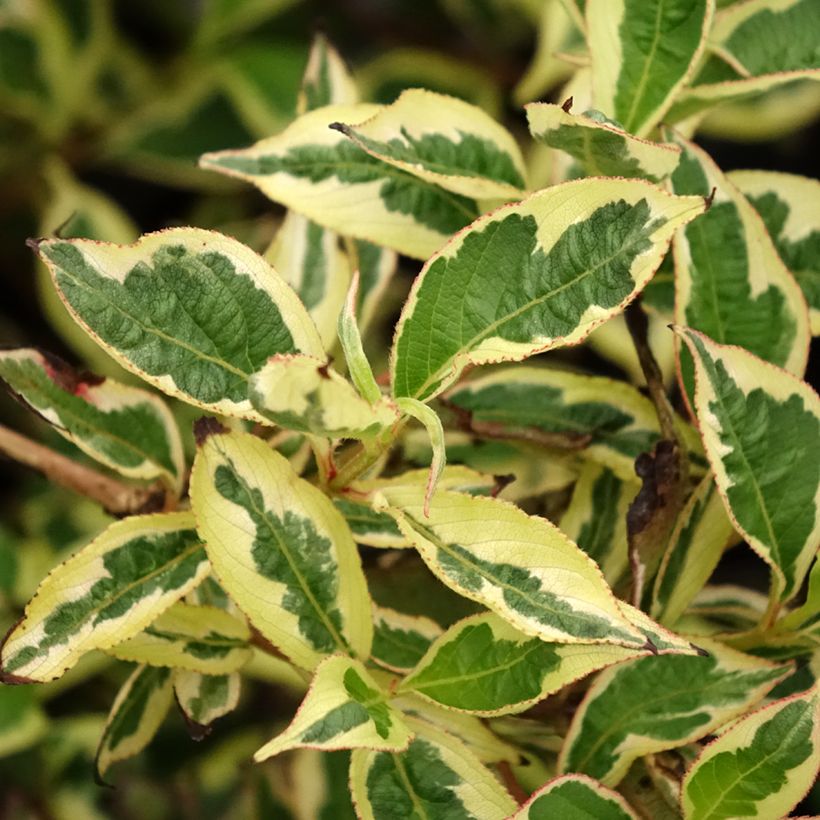

Plant habit
Flowering
Foliage
Botanical data
Weigela
florida
White Lightning
Caprifoliaceae
Old-fashioned Weigela
Cultivar or hybrid
Other Weigela
Planting and care
Hardy to -25°C(-13°F), Weigela 'White Lightning' thrives in sunny to semi-shady locations, with sunny exposures favouring flower production. Plant it from October to March (except during periods of frost) in ordinary, neutral to slightly alkaline, well-drained soil that does not dry out too much in summer, with a neutral to slightly alkaline pH. To maintain a compact bush and promote flowering, shorten the branches that carried the spring flowers by 2/3, just after flowering. Weigelia is an easy shrub to grow, but it does not like drought or sea spray.
Planting period
Intended location
Care
This item has not been reviewed yet - be the first to leave a review about it.
Foolproof Shrubs
Haven't found what you were looking for?
Hardiness is the lowest winter temperature a plant can endure without suffering serious damage or even dying. However, hardiness is affected by location (a sheltered area, such as a patio), protection (winter cover) and soil type (hardiness is improved by well-drained soil).

Photo Sharing Terms & Conditions
In order to encourage gardeners to interact and share their experiences, Promesse de fleurs offers various media enabling content to be uploaded onto its Site - in particular via the ‘Photo sharing’ module.
The User agrees to refrain from:
- Posting any content that is illegal, prejudicial, insulting, racist, inciteful to hatred, revisionist, contrary to public decency, that infringes on privacy or on the privacy rights of third parties, in particular the publicity rights of persons and goods, intellectual property rights, or the right to privacy.
- Submitting content on behalf of a third party;
- Impersonate the identity of a third party and/or publish any personal information about a third party;
In general, the User undertakes to refrain from any unethical behaviour.
All Content (in particular text, comments, files, images, photos, videos, creative works, etc.), which may be subject to property or intellectual property rights, image or other private rights, shall remain the property of the User, subject to the limited rights granted by the terms of the licence granted by Promesse de fleurs as stated below. Users are at liberty to publish or not to publish such Content on the Site, notably via the ‘Photo Sharing’ facility, and accept that this Content shall be made public and freely accessible, notably on the Internet.
Users further acknowledge, undertake to have ,and guarantee that they hold all necessary rights and permissions to publish such material on the Site, in particular with regard to the legislation in force pertaining to any privacy, property, intellectual property, image, or contractual rights, or rights of any other nature. By publishing such Content on the Site, Users acknowledge accepting full liability as publishers of the Content within the meaning of the law, and grant Promesse de fleurs, free of charge, an inclusive, worldwide licence for the said Content for the entire duration of its publication, including all reproduction, representation, up/downloading, displaying, performing, transmission, and storage rights.
Users also grant permission for their name to be linked to the Content and accept that this link may not always be made available.
By engaging in posting material, Users consent to their Content becoming automatically accessible on the Internet, in particular on other sites and/or blogs and/or web pages of the Promesse de fleurs site, including in particular social pages and the Promesse de fleurs catalogue.
Users may secure the removal of entrusted content free of charge by issuing a simple request via our contact form.
The flowering period indicated on our website applies to countries and regions located in USDA zone 8 (France, the United Kingdom, Ireland, the Netherlands, etc.)
It will vary according to where you live:
- In zones 9 to 10 (Italy, Spain, Greece, etc.), flowering will occur about 2 to 4 weeks earlier.
- In zones 6 to 7 (Germany, Poland, Slovenia, and lower mountainous regions), flowering will be delayed by 2 to 3 weeks.
- In zone 5 (Central Europe, Scandinavia), blooming will be delayed by 3 to 5 weeks.
In temperate climates, pruning of spring-flowering shrubs (forsythia, spireas, etc.) should be done just after flowering.
Pruning of summer-flowering shrubs (Indian Lilac, Perovskia, etc.) can be done in winter or spring.
In cold regions as well as with frost-sensitive plants, avoid pruning too early when severe frosts may still occur.
The planting period indicated on our website applies to countries and regions located in USDA zone 8 (France, United Kingdom, Ireland, Netherlands).
It will vary according to where you live:
- In Mediterranean zones (Marseille, Madrid, Milan, etc.), autumn and winter are the best planting periods.
- In continental zones (Strasbourg, Munich, Vienna, etc.), delay planting by 2 to 3 weeks in spring and bring it forward by 2 to 4 weeks in autumn.
- In mountainous regions (the Alps, Pyrenees, Carpathians, etc.), it is best to plant in late spring (May-June) or late summer (August-September).
The harvesting period indicated on our website applies to countries and regions in USDA zone 8 (France, England, Ireland, the Netherlands).
In colder areas (Scandinavia, Poland, Austria...) fruit and vegetable harvests are likely to be delayed by 3-4 weeks.
In warmer areas (Italy, Spain, Greece, etc.), harvesting will probably take place earlier, depending on weather conditions.
The sowing periods indicated on our website apply to countries and regions within USDA Zone 8 (France, UK, Ireland, Netherlands).
In colder areas (Scandinavia, Poland, Austria...), delay any outdoor sowing by 3-4 weeks, or sow under glass.
In warmer climes (Italy, Spain, Greece, etc.), bring outdoor sowing forward by a few weeks.

































